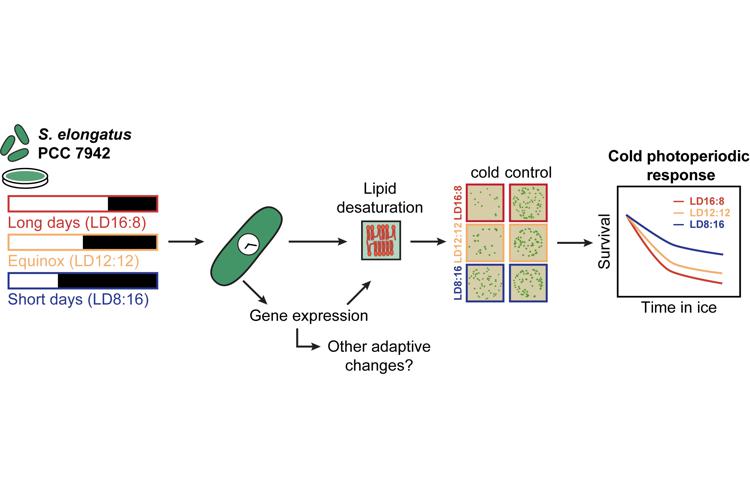- Share
- Share on Facebook
- Share on X
- Share on LinkedIn
Seminar
On November 10, 2025

Lisa Jabbur (The John Innes Centre, UK)
Do bacteria care about the seasons? All throughout the tree of life, organisms have evolved adaptive responses that allow them to deal with the seasonal variations their environment undergoes every year. Usually, they rely on day length (i.e. photoperiod) as an anticipatory cue of future environmental conditions, and particular photoperiods trigger major changes in physiology, behaviour and/or metabolism. Migration, flowering, diapause and hibernation are examples of such responses. Despite being widespread among eukaryotes, the phenomenon of photoperiodism has never been seriously considered within the realm of prokaryotes, likely due to the assumption that bacteria generally have such short life-cycles that an elaborate mechanism to predict the comparably slower seasonal changes would be excluded in favour of simple direct responses. In this presentation, I will challenge this idea by showing evidence that cyanobacteria are also capable of using photoperiod to anticipate the cold temperatures of winter, and that the way they do this is remarkably similar to eukaryotic photoperiodism.
Contact: Irina Mihalcescu
Date
11:00
Localisation
LIPhy, salle de conférence
- Share
- Share on Facebook
- Share on X
- Share on LinkedIn